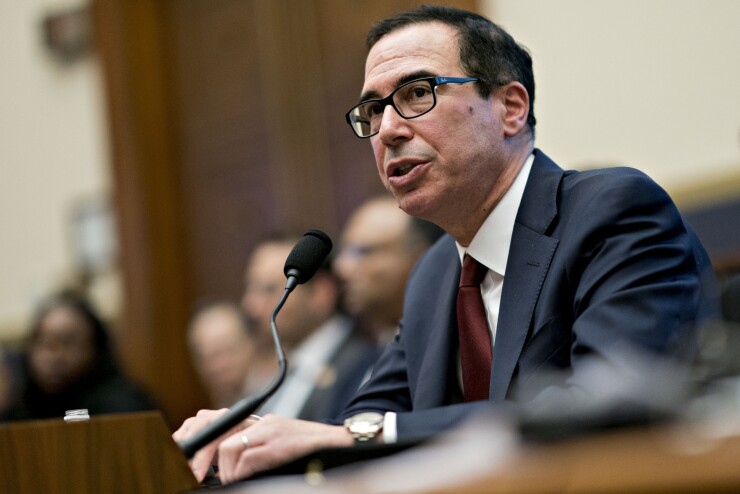The Internal Revenue Service issued
The proposed regulations permit the deferral of all or part of a gain invested in a Qualified Opportunity Fund, or QO Fund, that would otherwise be includible in income. The gain is deferred until the investment is sold or exchanged or Dec. 31, 2026, whichever date comes earlier. If the investment is held for at least 10 years, investors may be able to permanently exclude the gain from the sale or exchange of an investment in a QO Fund.
The tax benefit, created by the 2017 tax overhaul, is designed to drive economic development and create jobs by encouraging long-term investments in economically distressed communities around the country.
“We are pleased to issue guidance that provides greater flexibility for communities and investors as we continue to encourage investment and development in Opportunity Zones,” said Treasury Secretary Steven T. Mnuchin in a statement. “This incentive will foster economic revitalization, create jobs, and spur economic growth that will move these communities forward and create a brighter future.”

The new guidance aims to make it easier for opportunity zone funds to ensure compliance with the requirement that a fund has 90 percent of its assets invested in opportunity zones and expands the working capital safe harbors. The proposed regulations also provide clarity on treatment of gains on long-term investments, ownership and operation of the business, and what constitutes “qualified opportunity zone business property.”
Qualified opportunity zone business property is tangible property used in a trade or business of the QO Fund if the property was purchased after Dec. 31, 2017. The guidance allows tangible property acquired after Dec. 31, 2017, under a market rate lease to qualify as “qualified opportunity zone business property” if during substantially all of the holding period of the property, substantially all of the use of the property was in a qualified opportunity zone.
One of the main parts of the newly released guidance clarifies the “substantially all” requirements for the holding period and use of the tangible business property:
For use of the property, at least 70 percent of the property must be used in a qualified opportunity zone.
For the holding period of the property, tangible property must be qualified opportunity zone business property for at least 90 percent of the QO Fund’s or qualified opportunity zone business’s holding period.
The partnership or corporation must be a qualified opportunity zone business for at least 90 percent of the QO Fund’s holding period.
According to the guidance, there are situations where deferred gains may become taxable if an investor transfers their interest in a QO Fund. For example, if the transfer is done by gift the deferred gain may become taxable. However, inheritance by a surviving spouse is not a taxable transfer, nor is a transfer, upon death, of an ownership interest in a QO Fund to an estate or a revocable trust that becomes irrevocable upon death.
The top Republican on the tax-writing House Ways and Means Committee, Rep. Kevin Brady, R-Texas, who spearheaded the 2017 tax overhaul, offered praise for the proposed regulations. “Opportunity Zones, one of the many pro-growth provisions of our new tax code that are bringing increased investment and optimism to communities that need it most, will continue to lift this economy — especially for low- and middle-income workers who, today, are experiencing the fastest level of wage gains,” he said in a statement Wednesday. “This provision will help private dollars gravitate toward long-term investments to these areas, creating more jobs while stimulating higher growth and local innovation. Secretary Mnuchin and his team at Treasury have done an excellent job implementing this new tax code. These additional regulations will provide greater technical guidance for private investors seeking to invest in Opportunity Zones, helping our economy continue to march forward for working families.”





